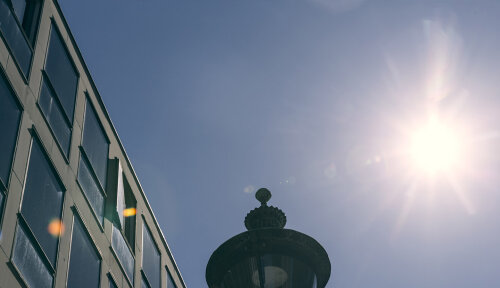Best Art & Cultural Property Law Lawyers in Denmark
Share your needs with us, get contacted by law firms.
Free. Takes 2 min.
Or refine your search by selecting a city:
List of the best lawyers in Denmark
About Art & Cultural Property Law in Denmark
Art & Cultural Property Law in Denmark focuses on the protection, regulation, and management of art and cultural properties. This area of law encompasses the rights associated with creation and ownership of artistic works, as well as the preservation and restitution of cultural heritage and artifacts. Denmark, as a nation rich in history and cultural artifacts, has implemented various laws to safeguard its heritage, promote cultural exchange, and ensure ethical practices in the trade and ownership of cultural properties.
Why You May Need a Lawyer
There are numerous situations where an individual, institution, or business might require legal assistance in the realm of Art & Cultural Property Law:
- Disputes over the ownership or authenticity of artworks.
- Legal issues surrounding the sale or purchase of art, including due diligence and provenance research.
- Restitution claims for cultural artifacts that were wrongfully removed or looted.
- Guidance on cultural heritage laws for institutions managing collections.
- Counsel for artists on copyright and intellectual property rights.
- Assistance in negotiating and drafting agreements related to art loans and exhibitions.
- Compliance with export and import regulations of cultural goods.
Local Laws Overview
Key aspects of local laws relevant to Art & Cultural Property Law in Denmark include:
- The Danish Museum Act: This act regulates the management and preservation of cultural heritage within Danish museums, focusing on ensuring accessibility and promoting cultural education.
- The Copyright Act: Governs the protection of creators' rights over artistic works, including enforcement mechanisms and exceptions specific to cultural sectors.
- Cultural Heritage Preservation Laws: These laws aim to protect national heritage by regulating excavations, exports, and trading of archeological artifacts.
- International Conventions: Denmark participates in international treaties, such as the 1970 UNESCO Convention, to prevent illicit import, export, and transfer of cultural property.
Frequently Asked Questions
What is considered cultural property in Denmark?
Cultural property in Denmark includes artifacts, artworks, historical buildings, and monuments that hold significance for the country's heritage and identity.
How can I prove ownership of an artwork?
To prove ownership, one should maintain proper documentation such as bills of sale, provenance records, and any legal certificates associated with the artwork.
Are there legal restrictions on exporting Danish cultural artifacts?
Yes, there are restrictions and permits required for exporting cultural artifacts to ensure they are not part of Denmark's protected heritage unless otherwise licensed.
Can I claim an inheritance dispute over family-owned art?
Inheritance disputes involving art collections are common and can be complex, requiring a legal professional to navigate property rights, split inheritance agreements, and international regulations if applicable.
What should I know about art loan agreements?
Art loan agreements should cover duration, insurance, transportation, display conditions, and restoration responsibilities. Legal consultation can ensure these terms are clearly defined.
How do copyright laws apply to art in Denmark?
Copyright laws in Denmark protect original works for the life of the creator and 70 years posthumously, covering reproduction rights, adaptations, and moral rights.
What recourse do I have if my artwork is deemed a forgery?
If an artwork is suspected to be a forgery, legal advice is crucial for negotiations with the seller or auction house and potentially pursuing remedial action in court.
How are cultural artifacts repatriated to Denmark?
Repatriation involves negotiations or legal processes to recover artifacts removed from Denmark, guided by international agreements and cooperation with foreign entities.
What regulations exist for art dealers in Denmark?
Art dealers must comply with laws on trade ethics, provenance research, anti-money laundering, and respecting protected cultural heritage items.
How can I verify the authenticity of an art piece?
Verifying authenticity involves expert appraisals, provenance verification, and sometimes forensic analysis, with legal oversight ensuring compliance with trade standards.
Additional Resources
For individuals seeking further assistance, consider reaching out to these Danish resources:
- The Danish Agency for Culture and Palaces: Oversees cultural heritage protection and offers guidance on related laws and regulations.
- The Danish Arts Foundation: Provides support and funding for artists and projects, often guiding on legal rights in artistic endeavors.
- The Rights Alliance (Rettigheds Alliancen): Provides resources and support for copyright protection in Denmark.
- International Council of Museums Denmark: Offers resources and advocacy related to museum standards and cultural property laws.
Next Steps
If you require legal assistance in the field of Art & Cultural Property Law, consider the following steps:
- Identify your specific needs and gather relevant documents and information related to your case.
- Consult with a legal professional specializing in Art & Cultural Property Law to evaluate your situation and discuss potential legal options.
- Research and confirm the credentials and experience of legal experts you approach, ensuring they have a strong background in Danish cultural property regulations.
- Prepare a clear outline of your goals and any questions you may have for the legal expert during the consultation.
- Explore alternative dispute resolution methods if suitable, as they may offer less adversarial solutions to some legal challenges.
Lawzana helps you find the best lawyers and law firms in Denmark through a curated and pre-screened list of qualified legal professionals. Our platform offers rankings and detailed profiles of attorneys and law firms, allowing you to compare based on practice areas, including Art & Cultural Property Law, experience, and client feedback.
Each profile includes a description of the firm's areas of practice, client reviews, team members and partners, year of establishment, spoken languages, office locations, contact information, social media presence, and any published articles or resources. Most firms on our platform speak English and are experienced in both local and international legal matters.
Get a quote from top-rated law firms in Denmark — quickly, securely, and without unnecessary hassle.
Disclaimer:
The information provided on this page is for general informational purposes only and does not constitute legal advice. While we strive to ensure the accuracy and relevance of the content, legal information may change over time, and interpretations of the law can vary. You should always consult with a qualified legal professional for advice specific to your situation.
We disclaim all liability for actions taken or not taken based on the content of this page. If you believe any information is incorrect or outdated, please contact us, and we will review and update it where appropriate.
Browse art & cultural property law law firms by city in Denmark
Refine your search by selecting a city.















